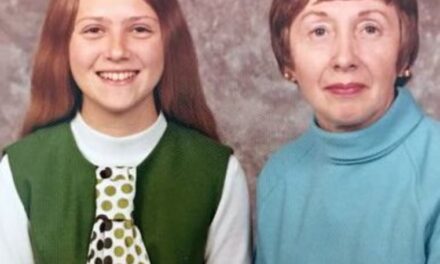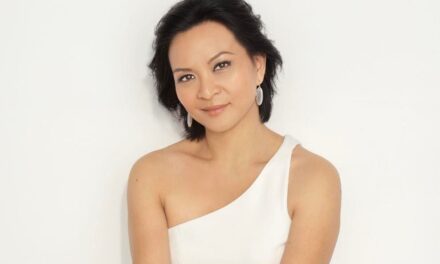It’s been a momentous year for Danielle Étienne. In early December, she gave birth to a son, Ezekiel. Five months later, she earned a bachelor’s degree in psychology from Fordham College at Rose Hill. And last week, when the Women’s World Cup kicked off in Australia and New Zealand, the 22-year-old midfielder helped make history for a scrappy Haitian national team that earned its first-ever spot in the tournament.
Étienne’s journey to the World Cup has been fueled by her experiences at Fordham, where she played three seasons for the Rams, and by five years competing for the Haitian national team. Her paternal grandfather immigrated to the U.S. from Haiti, and she grew up in Paterson, New Jersey. She said representing her ancestral country—and particularly being part of something positive for a nation in turmoil—is the highlight of her young career.
“It’s definitely an honor and a privilege,” she said from her hotel in Perth, Australia, just ahead of the World Cup. “We know what happiness the team brings to the country. Every time we step out on the field, it’s kind of our responsibility and we don’t take it lightly.”
Here are six things to know about Danielle Étienne.
1. She helped put the Haitian national team on the sport’s biggest stage.
While Haiti is making its first appearance in a Women’s World Cup, this is a second of sorts for Étienne, who, along with several current teammates, had a tiny taste of the world stage when she participated in the U-20 World Cup in 2018.
“I was 17 years old, going to the U-20 World Cup, and I felt like I was even younger,” she said. “I definitely feel a little bit more mature now, and have more composure, more experience. And I think it also feels different because it’s the FIFA Women’s World Cup. This is what I watched as a little girl. I’d grown up watching my idols, like Marta, at a World Cup, and now I’m playing in the same World Cup as her. That’s insane!”
2. Soccer is in her DNA, and her father and brother help keep her focused.
Étienne lives by the motto “Faith, Family, and Football.” Her father, Derrick Étienne Sr., played professionally in the U.S., and her brother, Derrick Jr., is a midfielder with Major League Soccer club Atlanta United. Both played for the Haitian national team. So, when they give advice, she listens.
“My father always told me and my brother that we have to work for everything that we want, and we can’t expect anything to be given to us,” Étienne said. The other voice in her head is her brother’s, guiding her when she gets sidetracked by those who doubt her.
“I was giving other people so much power and letting their words affect me. My brother told me, ‘Don’t worry about proving people wrong, worry about proving yourself right.’ I know I have the talent, I know I have the potential. I just have to put in the work.”
3. She had a special feeling about Fordham when she visited Rose Hill.
Étienne had three criteria for selecting a college: great academics, a strong soccer program, and proximity to her family in New Jersey. Fordham checked all the boxes.
“Once I got on campus, I felt it,” she said. “I felt like it was the right place and environment. And then I actually got to talk to girls on the team, and you could tell they were just so genuine. They were very forthcoming in terms of information and what their experience was like. And talking to the coaching staff as well, and understanding what they wanted to do within the program, to build the team. So, the combination of those things all kind of just made it into a very great package for me.”
Étienne was named to the Atlantic 10 Conference All-Rookie Team in 2019, and she earned a spot on the A-10 Commissioner’s Honor Roll in each of the three seasons she competed for the Rams.
4. During the pandemic, and Fordham’s “season without sports,” Étienne helped advance the University’s anti-racism action plan.
Étienne said that in 2020, amid social unrest and calls for racial justice after the killing of George Floyd, she was fortunate to have a supportive team environment where she could share the concerns she had—about her brother or father being pulled over by the police, the stressors of attending a predominantly white institution, and everyday microaggressions. What started as a conversation with her soccer teammates led to a diversity, equity, and inclusion group that branched out into the athletics department at Fordham. Étienne led the subcommittee on education and worked to bring in speakers of color who discussed their experiences.
“It’s one of the things I’m very proud of, leaving that at Fordham,” said Étienne, who received the Ignatian Social Justice/DEI Award from the Fordham athletics department in 2021. “Knowing that I didn’t just say, ‘I’m a student-athlete.’ But there are some things that are going on in the world that we have to acknowledge. And then we have to see what we can do to be better. Because if we’re not part of the solution, then we’re part of the problem.”
5. She’s inspired by the growth of the women’s game both in the U.S. and globally.
Étienne points to the historic U.S. women’s national team’s win for equal pay, the talent of the players in the National Women’s Soccer League as well as the expansion of the league, and the support for players, like her, who have children and return to the game.
“I’m proud that this is the era that I’m in now, and that I have even more opportunities because of all people who came before me,” she said. “Knowing what it was like 10, 15 years ago, and seeing how much progress has been made, I’m proud of how far we’ve come.”
6. Her Fordham psychology degree and volunteer work are prep for her post-soccer career.
If she wasn’t playing soccer, Étienne said she would be working to make a difference in her community and counseling those in need. With the Etienne Family Foundation, started by her brother, she has helped support youth in her hometown of Paterson, New Jersey, conducting fitness and soccer clinics and raising money for equipment and places to play. They also organize coat drives and fundraisers to bring supplies to the many in need in Haiti.
“It is important you remember that there are so many people who are less fortunate than you, and who deserve a chance as well,” she said. “And the next Messi or the next Marta can be sitting in Haiti with no cleats right now.”
—Tracey Savell Reavis, FCLC ’01, is the CEO of The Savell Group, a sports communication consulting firm, and co-chair of Diversity in Sport Day, August 28. She is a veteran journalist with more than 20 years of writing, editing, and teaching experience, and author of a book on the career of footballer David Beckham (Rowman & Littlefield, 2014). Traveling to New Zealand to cover her first World Cup is a dream come true.





